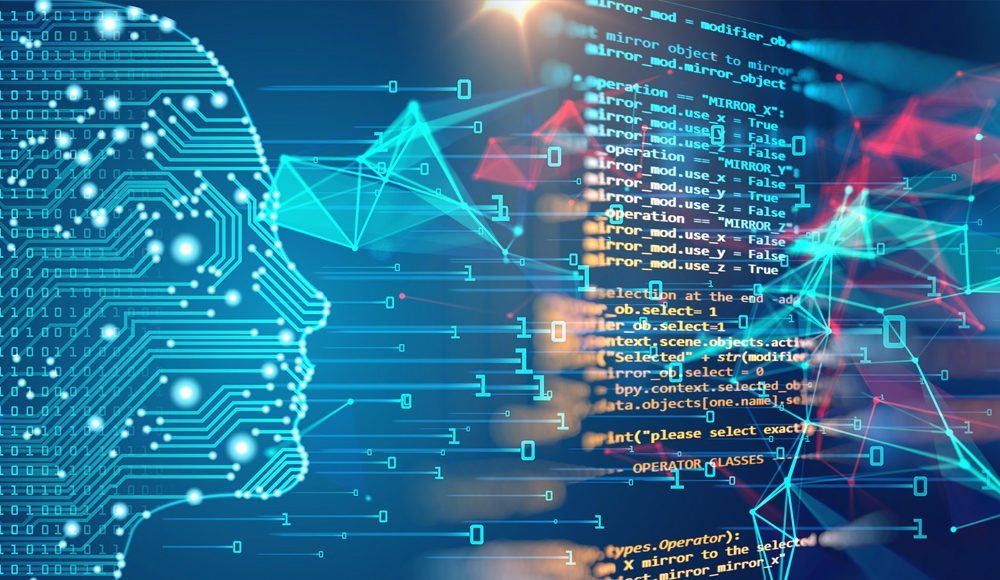Understanding Artificial Intelligence: What is AI
Understanding Artificial Intelligence is important as it has altered the ways humans work so basically, artificial intelligence is defined as the process through which computer or computer assisted robots performs task that are related to human beings. The key role of artificial intelligence is to rationalize and take steps to attain a specific result.
The work on artificial intelligence was carried out in 1950s and was used in 1960s by the U.S. Department of Defence, they have trained computers in such a way that imitates humans’ logic. Computers can perform very complex task with greater speed and efficiency but still there is no program that can match with human intelligence and process such broad concept of human like intelligence is called artificial intelligence.

Recently in the artificial intelligence work on a system known as generative artificial intelligence. Generative AI is a type through which original text, videos and images can be generated. Machine learning is the type of artificial intelligence similarly, deep learning is a type of machine learning whereas, neural networking is the backbone of deep learning.
Machine Learning, Deep Learning and Neural Networking
Machine learning is a type of artificial intelligence that allows for optimization. When machine learning is set up correctly that helps you in making projections that reduces the errors that merely results from guessing for example, companies like amazon uses machine learning to suggest products to specific customers because they have looked or searched for it.
A large portion of the feature extraction process is automated by deep learning, which reduces the need for manual human intervention. It also makes big data sets usable, moreover big data sets are unstructured. Over 90% of the organization’s datasets are unstructured.
Neural networks are the subset of machine learning. They are named neural because the understand how neurons in brains signals one another. Speech and picture recognition tasks that take hours to do by hand can now be completed in minutes with neural networks. The neural network used in Google’s search algorithm is a well-known example.
Artificial Intelligence in Various Industries: Technological revolution
Artificial intelligence is a rapidly growing field that is used by various industries across the globe. Organizations and individuals use AI to perform laborious chores, information analysis and software optimization. The most perfect example which individuals have experienced is of Alexa.
Some AI applications contributing to technological environment includes:
-
Chatbots
The launch of ChatGPT, Meta AI and many other conversational tools are an example of chatbots these tools acts in a conversational manner they can answer different questions and even challenge certain ideas. Thousands of companies have used AI chatbots to provide 24/7 customer support and help As AI continues to evolve it likely that chatbot’s language processing will grow more sophisticated
-
Agriculture
AI has also increased agriculture. Machine learning and deep learning has produced applications that can provide soil deficiencies and provide planting suggestions. AI in agriculture assists in knowing weather conditions to predict forecast and plant accordingly, determine the best crops to grow, address pest attacks, measure soil conductivity and ph.
-
Ecommerce
AI is helpful in ecommerce industry as well. Several organizations imply different AI tools & techniques to fasten their process. Organization use AI for several purposes such as inventory management, showcasing products based on customer’s search and browsing history, chatbot, support centers and customer care.
-
Education
Education is mostly under controlled by human personals. AI in education encourages educators potential. Often, AI is used is helping complex tasks such as grading homework, scheduling meetings, managing multiple online courses at once, creating lectures, designing course curriculum etc.
-
Finance
Bank customers can take advantage of AI to get information about their bank accounts customers can check variations in their transaction’s patterns. Lenders incorporate AI to predict and assess risk level and perform lending. The process of cashflow statements, profit and loss statement are also optimized with the help of artificial intelligence.
-
Healthcare
With the emergence of artificial intelligence. It has also made its entry in healthcare sector. It has reshaped the way medical workers diagnose, treat and monitor patients. AI has a wide range of uses from estimating results through electronic health information to analyzing radiological images for early detection. Artificial intelligence can be used in hospitals and clinic settings to make healthcare systems work faster and smarter.
-
Social Media
Firms like meta and twitter use AI to analyze huge amount of data and generate result driven insights many companies also use AI to promote their social media brand by keeping a record of customer behavior and intentions, monitor comments, new post suggestions, content suggestions ids what to post or not, and determine what currently leading.
Examples of Companies: Enhancing industries in 2024
According to McKinsey study. Google invested 20-30 billion dollars on AI in 2016 with 90% of this investment was on research and development whereas 10% was on AI acquisitions. The current rate of AI investment is 3x external investment growth since 2013. Netflix has achieved maximum subscribers with the help of AI it gives personalized recommendations to its 100 million subscribers worldwide. Financial data specialist like Bloomberg use methods such as natural language processing and computer vision to enhance the range of data accessible through their widely used terminals, natural language can be users in place of technical commands which are processed and carried out by artificial intelligence.
Benefits and challenges of Implementing artificial intelligence
- AI is bringing a lot of benefit for us but at the same it possesses challenges for human beings as well. The first major benefit is that it minimizes error and risk. Using AI to complete task particularly repetitive ones can minimize human errors.
- Humans work on specific time likely to be 8 hours a day whereas, machines can work all hours a day anytime at any place Similarly, AI chatbots can provide customer support during off-hours.
- AI can work every time and any time from anywhere it creates more value than a human worker. Additionally, it takes up manual and boring tasks it frees up worker for high skilled tasks.
- As mentioned earlier AI can pose several challenges as well such as implementation can be extremely costly. As per one estimate the cost for a fully implemented AI solution for most businesses ranged from 20,000 dollars to well in millions.
- It reduces emotion and creativity. The next challenge is of lack of emotion and creativity as human as human tends to ask every thing from AI which in turn declines our emotions and creativity.
- As machines are not human beings so there is chance that they might degrade after sometime Likewise, the AI itself can become outdated if not trained to learn and regularly evaluated by human data scientists.
Final Thoughts
Globally, artificial intelligence has revolutionized sectors by promoting productivity, creativity, and improved decision-making. Artificial Intelligence (AI) has demonstrated its ability to transform various industries, including healthcare, banking, education, and agriculture. Unquestionably, artificial intelligence (AI) reduces human error, boosts efficiency, and solves complicated issues, but it also has drawbacks in terms of cost, maintenance, and innovation. The secret to realizing AI’s full potential as we move forward in this technological revolution will be striking a balance between human creativity and its capabilities. AI is still in its early stages of development, and the sectors it affects will continue to influence how we work and live.
Also Read: Khadas Mind Modular PC
Frequently Asked Questions
How machine Learning Works?
Machine learning is a type of artificial intelligence that allows for optimization. When machine learning is set up correctly that helps you in making projections that reduces the errors.
Which type of industries implements the use of AI?
AI is used in health care, ecommerce, education, finance, social media and agriculture. However, AI is applications are expanding rapidly transforming businesses and improving lives.
What are the benefits and challenges which arise because of AI?
There are numerous benefits of AI such as minimizing errors, never ending working hours, can work anytime, every time and from anywhere. However the challenges can be they might be extremely costly, reducing emotions and creativity, AI is a machine so it can stop working anytime.












Add your first comment to this post